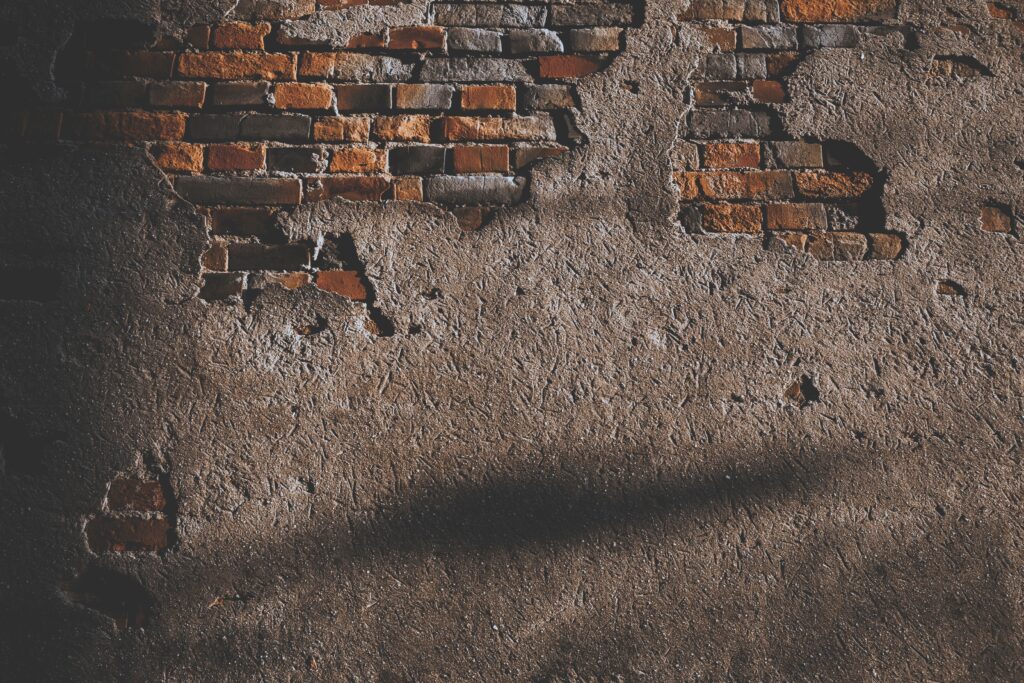In the midst of struggles and crises all across our nation, our friends and colleagues share what they think we should be reading to understand this moment and to fortify ourselves against the influence of ideologues and the movements that would undermine a strong civil society. The eighth in a series.
Read the previous installments of our “Readings for Troubled Times” series here. This continues our effort to understand the times in which we live by recommending readings that are relevant to the strange moment in which we find ourselves.
What you should read: Dietrich Bonhoeffer: Pastor, Martyr, Prophet, Spy, by Eric Metaxas.
Why: This book has so many important lessons for Christians in America today. It is a sobering reminder of how quickly horrible and destructive ideologies can overtake a magnificent culture shaped by Biblical ideas. It also provides an opportunity to learn how strong the temptation is for the church to conform to these ideas, yet how important it is to resist this temptation and recommit ourselves to standing together for the truth, beauty and goodness of God’s Kingdom in the midst of growing darkness and chaos. Bonhoeffer is an inspiring and courageous example.
Scott Allen
President, Disciple Nations Alliance
What you should read: Faith and the Future, by Joseph Ratzinger.
Why: Originally published in 1970, this series of radio addresses by the then-young theologian, Father Joseph Ratzinger, are eerily prescient. He predicts a Church that "will become small and will have to start afresh more or less from the beginning. She will no longer be able to inhabit many of the edifices she built in prosperity." We see this great winnowing occurring. But Ratzinger sees great opportunity in this diminishment. He describes how people "in a totally planned world will find themselves unspeakably lonely" especially those who "have completely lost sight of God." It is here that the mustard seed of the Church, stripped of her worldly powers and influence, can again be a source of renewal. The small, patiently witnessing flock, totally open to the world, will demonstrate to men and women a new way. Here, a world tired from the antagonisms and revolutions of politics that never satisfy will find "an answer for which they have always been searching in secret."
Conor Dugan
Attorney
What you should read: Gorgias, by Plato.
Why: In our culture, people tend to instrumentalize … everything. Under the influence of, broadly speaking, utilitarian philosophical ideas, people focus on means—instrumental goods—and fail to reflect seriously about the ends to which the means are means—the things that are intrinsically worthwhile. What are those things? Is wealth an intrinsic good? Power? Influence? Social status? Many people act as if some or all of these things are what ultimately matter? But, as Plato’s writings show us, that can’t be right. What about knowledge? What about truth and truth-seeking? Many, including many students in thinking about the point of their education, seem to regard knowledge as merely an instrumental good—a means to wealth, power, influence, status. But Plato shows us that this is to get things exactly backwards. Truth, and knowledge of truth, are more fundamentally ends than they are means. And truth-seeking is inherently valuable as a fulfillment of the human person, not a merely instrumental good. Indeed, even in discussion and debate, we go wrong in supposing that the goal is victory, or making a good impression, or getting ahead. Rather, the fundamental and decisive point is to gain knowledge of truth.
Robert P. George
McCormick Professor of Jurisprudence and Director of the James Madison Program in American Ideals and Institutions at Princeton University.
What: “Journalism in America,” H.L. Mencken
Why: H. L. Mencken (1880-1956) was a force in journalism, op-ed writing, literary criticism, and magazine editing during the first four decades of the twentieth century. The perennial curmudgeon who lived his entire life in Baltimore, Mencken dissented from the platitudes of Victorian literature and Protestant piety and carved out space for his own views on everything from the presidency and regionalism to feminism and sex education. His negative assessment of journalism in this piece is typical of the critical perspective he brought to almost every topic, even his own profession. Since the press mediates and interprets so much of the information that Americans receive (especially currently about public health and social injustice), Mencken’s critical evaluation of journalists during the 1920s is an indication that distorting the news is not new.
D.G. Hart
Distinguished Associate Professor of History, Hillsdale College
Excerpts from H.L. Mencken's "Journalism in America," 1927:
“For example, the problem of false news. How does so much of it get into the American newspapers, even the good ones? Is it because journalists, as a class, are habitual liars, and prefer what is not true to what is true? I don’t think it is. Rather, it is because journalists are, in the main, extremely stupid, sentimental and credulous fellows—because nothing is easier than to fool them—because the majority of them lack the sharp intelligence that the proper discharge of their duties demands. The New York Times did not print all its famous blather and balderdash about Russia because the Hon. Mr. Ochs desired to deceive his customers, or because his slaves were in the pay of Russian reactionaries, but simply and solely because his slaves, facing the elemental professional problem of distinguishing between true news and false, turned out to be incompetent. All around the borders of Russia sat propagandists hired to fool them. In many cases, I have no doubt, they detected that purpose, and foiled it; we only know what they printed, not what they threw into their wastebaskets. But in many other cases they succumbed easily, and even ridiculously, and the result was the vast mass of puerile rubbish that Mr. Lippmann later made a show of. In other words, the editors of the American newspaper most brilliantly distinguished above its fellows for its news-gathering enterprise turned out to be unequal to a job of news-gathering presenting special but surely not insuperable difficulties. It was not an ethical failure, but a purely technical failure. And so was the same eminent newspaper’s idiotic misreporting of the news from China in the early part of 1927, and the grotesque paralysis of the whole American press in the face of the Miami hurricane in 1926.
“Obviously, the way to diminish such failures in future is not to adopt sonorous platitudes borrowed from the realtors, the morticians, the sanitary plumbers and Kiwanis, but to undertake an overhauling of the faulty technic, and of the incompetent personnel responsible for it. This overhauling, of course, will take some intelligence, but I don’t think it will make demands that are impossible. The bootlegging, legal or delicatessen professions, confronted by like demands, would quickly furnish the talent necessary to meet them; I see no reason why the profession of journalism should not measure up as well. What lies in the way of it is simply the profound, maudlin sentimentality of the average American journalist—his ingenuous and almost automatic belief in everything that comes to him in writing. One would think that his daily experience with the written word would make him suspicious of it; he himself, in fact, believes fondly that he is proof against it. But the truth is that he swallows it far more often than he rejects it, and that his most eager swallowing is done in the face of the plainest evidence of its falsity. Let it come in by telegraph, and his mouth flies open. Let it come in by telegraph from a press association and down it goes at once. I do not say, of course, that all press association news is thus swallowed by news editors. When the means are readily at hand, he often attempts to check it, and sometimes even rejects it. But when such checking presents difficulties—in other words, when deceit is especially easy, and hence should be guarded most vigilantly—he succumbs nine times out of ten, and without a struggle. It was precisely by this process that the editors of the Times, otherwise men of extraordinary professional alertness, were victimized by the Russian “news” that made that paper ridiculous. In the face of great improbabilities, they interpreted their inability to dispose of them as a license to accept them as truth. Journalism will be a sounder and more dignified profession when a directly contrary interpretation of the journalist’s duty prevails. There will then be less news in the papers, but it will at least have the merit of being true.
“Nor is the typical American journalist’s credulity confined to such canards and roorbacks from far places. He is often victimized just as easily at home, despite his lofty belief that he is superior to the wiles of press agents. The plain fact is that most of the stuff he prints now emanates from press agents, and that his machinery for scrutinizing it is lamentably defective. True enough, the bold, gay liars employed by theatrical managers and opera singers no longer fool him as they used to; he has grown so suspicious of them that he often turns them out when they have real news. But what of the press agents of such organizations as the Red Cross, the Prohibition Unit, the Near-East Relief, the Chamber of Commerce of the United States, the Department of Justice, the Y. M. C. A., and the various bands of professional patriots? I do not say that the press agents of such bodies are always or necessarily liars; all I say is that, nine times out of ten, their statements are accepted as true by the newspapers without any attempt to determine accurately whether they are true or not. They may be simple statements of plain fact; they may, on the contrary, conceal highly dubious purposes, of organizations and individuals. In both cases they are set forth in the same way—solemnly and without comment. Who, ordinarily, would believe a Prohibition agent? Perhaps a Federal judge in his robes of office and full of seized evidence; I can think of no one else. Yet the American newspapers are filled every day with the dreadful boasts and threats of such frauds: it is set before the people, not as lies, but as news. What is the purpose of such rubbish? Its purpose, obviously, is to make it appear that the authors are actually enforcing Prohibition—in other words, to make them secure in their jobs. Every newspaper man in America knows that Prohibition is not being enforced—and yet it is rarely that an American newspaper comes out in these days without a gaudy story on its first page, rehearsing all the old lies under new and blacker headlines.”






